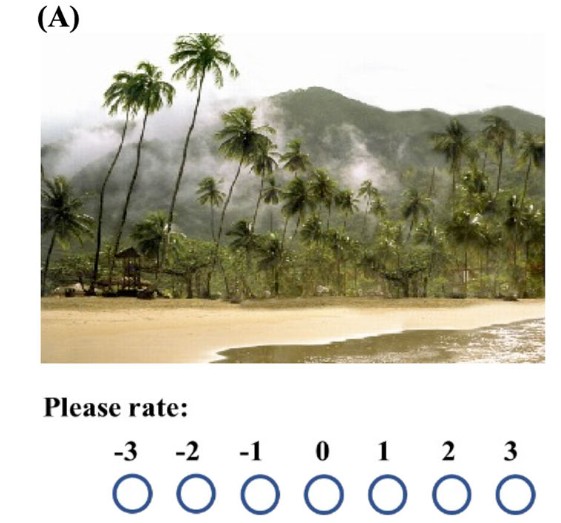Imagine being able to predict someone’s anxiety level just by having them rate a few pictures and answer some simple questions.
That’s exactly what researchers from the University of Cincinnati and Northwestern University have accomplished with their “Comp Cog AI†system.Â
By combining AI with the science of how our minds process information, they’ve created a tool that can accurately identify people who might be struggling with anxiety.Â
The study, published in Mental Health Research, involved over 3,000 participants from across the US.
Each person rated a series of mildly emotional images from the International Affective Picture System (IAPS) and provided basic information about themselves, such as age and perceived loneliness.Â
IAPS was developed by the Center for the Study of Emotion and Attention at the University of Florida. It provides a standardized set of photographs rated for their emotional content in terms of valence (pleasantness), arousal (intensity), and dominance (control).
An example of an image from the International Affective Picture System (IAPS). Source: Mental Health Research.
The AI system then analyzed this data, looking for patterns in the way people responded to the pictures and how these responses related to their anxiety levels.Â
After training, the Comp Cog AI system was able to predict anxiety with up to 81% accuracy, offering hope for a future where mental health challenges can be identified and addressed more effectively.
As lead author Sumra Bari explains, “We used minimal computational resources and a small set of variables to predict anxiety levels. An important set of these variables quantify processes important to judgment.â€
More about the study
Here’s more about how the study worked:
Data collection: Participants completed a picture rating task, assigning ratings from -3 (dislike very much) to +3 (like very much) to 48 mildly emotional images from IAPS. They also answered questions about their age, perceived loneliness, and demographic information.
Feature extraction: The AI system extracted 15 key judgment variables from the picture rating data, such as loss aversion, risk aversion, and reward-aversion consistency. These variables quantify biases in reward/aversion judgments and have been linked to brain systems implicated in both judgment and anxiety.
AI training and prediction: The researchers used Random Forest and balanced Random Forest machine learning algorithms to train the AI system on a subset of the data. The AI used the judgment variables and contextual factors to predict each participant’s anxiety level, as measured by the state anxiety portion of the State-Trait Anxiety Inventory (STAI).
Model evaluation and interpretation: The trained AI system was tested on the remaining data to assess its accuracy, sensitivity, and specificity in predicting anxiety levels. The researchers also conducted mediation and moderation analyses to understand how the judgment variables and contextual factors interacted to model anxiety.
The four most important predictors – age, loneliness, household income, and employment status – contributed 29-31% of the model’s predictive power, while the 15 judgment variables collectively contributed 55-61%.
Co-senior author Aggelos Katsaggelos highlighted the significance of the study’s approach, stating, “Use of a picture rating task with contextual variables that affect judgment may seem simple, but understanding patterns in preference allows us to uncover the critical components for a large set of behaviors.â€
The researchers envision developing the Comp Cog AI technology into a user-friendly app for healthcare providers, hospitals, and even the military to quickly identify individuals at high risk for anxiety.Â
As Bari notes, “The picture-rating task can be used to produce daily and unbiased snapshots of a person’s mental health status without asking direct questions which may trigger negative or upsetting feelings.â€Â
Previous research harnessed AI to help diagnose schizophrenia, while tools have been developed to deliver AI therapy to those with mental health conditions through digital avatars.Â
The post AI system can predict how anxious you are from reactions to photos appeared first on DailyAI.
Source: Read MoreÂ

